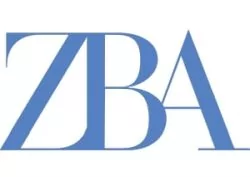Introduction
The recent ruling of the Delhi High Court1 in the Go Air insolvency is a pivotal moment in Indian aviation and insolvency law. What is interesting (and also encouraging) is the primacy given by the High Court to the International convention over the insolvency code. The international community will watch this development with interest. Though from the perspective of business and the international players, the ruling appears to be in sync with India's commitment under the Cape Town Convention and Cape Town Protocol. But domestically, the ruling appears to have deviated from many settled principles. The simple question before the Delhi High Court was whether the aircraft can be deregistered by the DGCA, when the insolvency of Go Air is pending.
Brief Facts
Lessors (the petitioners here) leased 54 aircraft to Go Air and obtained Irrevocable De-registration and Export Request Authorisation2 from Go Air for each aircraft. Go Air defaulted in the lease rental payments, and the lessors terminated the lease and applied for deregistration of the aircraft with the DGCA. The lease was terminated before the initiation of insolvency against Go Air. But termination notices mentioned the voluntary insolvency of Go Air as one of the grounds of termination of the lease – the High Court rejected this.
Go Air was admitted for insolvency on 10 May 2023 and a mortarium was imposed under section 14(1) of the Insolvency and Bankruptcy Code, 2016 ("IBC"). Following this, the DGCA rejected the deregistration applications citing the moratorium3. Therefore, the lessors invoked the writ jurisdiction of the Delhi High Court seeking directions against the DGCA to deregister the aircraft and export them.
Writ Jurisdiction v. NCLT
The RP of Go Air challenged the jurisdiction of the Delhi High Court citing section 60(5) of IBC under which only the NCLT has exclusive jurisdiction to decide the "issues arising out of and in relation to the insolvency". Here, the lessors issued default notices and terminated the lease because of the default by Go Air in paying the lease rentals. This was much before the insolvency of Go Air.
The High Court therefore ruled that the termination had neither "arisen out of" nor "relating to the insolvency". The natural conclusion was that the NCLT cannot exercise the jurisdiction over an issue which has no nexus with the insolvency of Go Air. The court also ruled that the NCLT lacks power of judicial review over the governmental authorities, in this case the DGCA. Whether the court should have decided the nature of the termination notices in the course of judicial review of the DGCA decision, is questionable.
Was Go Air in possession of the aircraft in terms of section 14(1)(d) of IBC?
Section 14(1)(d) of the IBC prohibits recovery of any property by the owner or lessor where such property is 'occupied by' or 'in the possession' of the corporate debtor. The court ruled that the aircraft ceased to be the property in possession of Go Air on termination of the lease before the insolvency. And accordingly concluded that Section 14(1)(d) was inapplicable. This appears to disregard the Supreme Court's judgment in Rajendra K Bhuta[4]. The Supreme Court in Rajendra K Bhuta ruled that the expression "occupied" does not refer to rights or interests created in property but only actual physical possession of the property. The physical possession of the aircraft was with Go Air. Also, if all aircraft are deregistered then the insolvency proceedings of Go Air (and for that matter any airline) will be a paper formality.
Retrospective application of the MCA notification
The Ministry of Corporate Affairs issued a notification under section 14(3) of the IBC on 03 October 2023 excluding aircraft, aircraft engines and airframes from the moratorium. The notification is in consonance with the Cape Town Convention and Protocol – ratified by India. Under this convention, the aircraft must be returned to the owner within 2 months of the insolvency of the lessee. The Aircraft Act and the rules there also incorporate the terms of the convention. The Delhi High Court relied on the notification to justify its conclusion. But the notification was not retrospective and the rule of prospectivity was a hurdle for the court. The court ruled that the notification was retrospective because India ratified the Cape Town convention in 2008 and the notification simply clarified India's commitment under the convention. Again, not a strong conclusion because if that was the intention then nothing stopped the legislature (here the delegated) to clarify that in the notification.
Conclusion
The decision underscores the importance of adhering to treaty commitments, such as the Cape Town Convention and Protocol, and ensuring clarity in the regulatory measures. Through its retrospective interpretation of the MCA notification, the court has addressed a critical legal gap, benefitting the aviation industry and promoting regulatory certainty. The ruling underscores India's commitment to international treaties and conventions. But the larger question is whether the insolvency process should have sector specific exclusions. The interpretation of moratorium and retrospectivity of the notification will require to be tested before the Apex court.
Footnotes
1. Order dated 26 April 2024 in WP(C)/6569/2023 and other connected matters.
2. IDERA operates under Article XIII of the Cape Town Protocol and provides that the lessor is the sole person entitled to procure the deregistration of the aircraft by the DGCA and to procure and physically export the aircraft from India.
3. Moratorium is a legal provision that comes into effect upon the commencement of insolvency proceedings, prohibiting certain actions against the corporate debtor.
4. Rajendra K Bhuta v. Maharashtra Housing and Area Development (Civil Appeal No 12248 of 2018)
The above is a generic analysis and should not be regarded as a substitute for specific advice based on the facts of a client's objectives and specific commercial agreements reached. Please do reach out to us at mail@zba.co.in for any queries.


